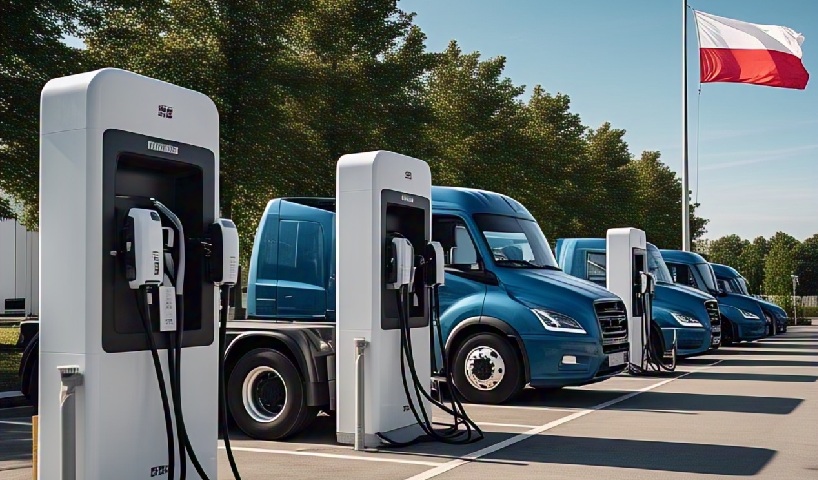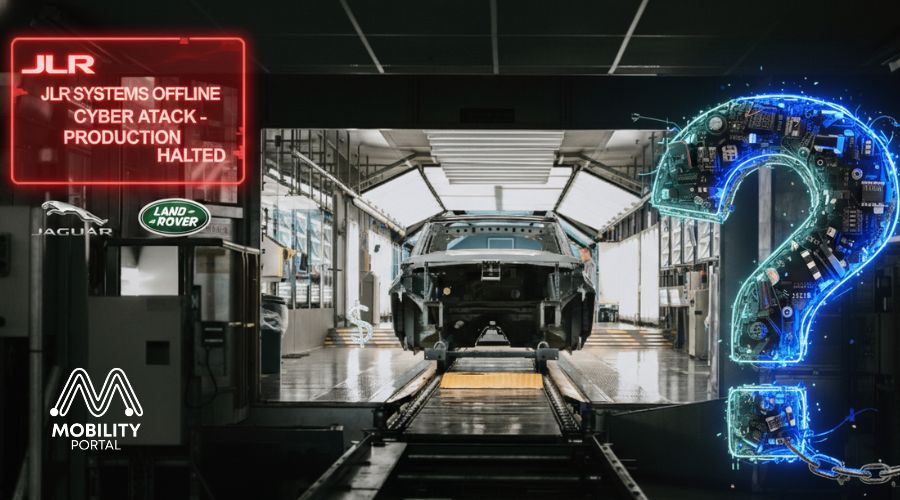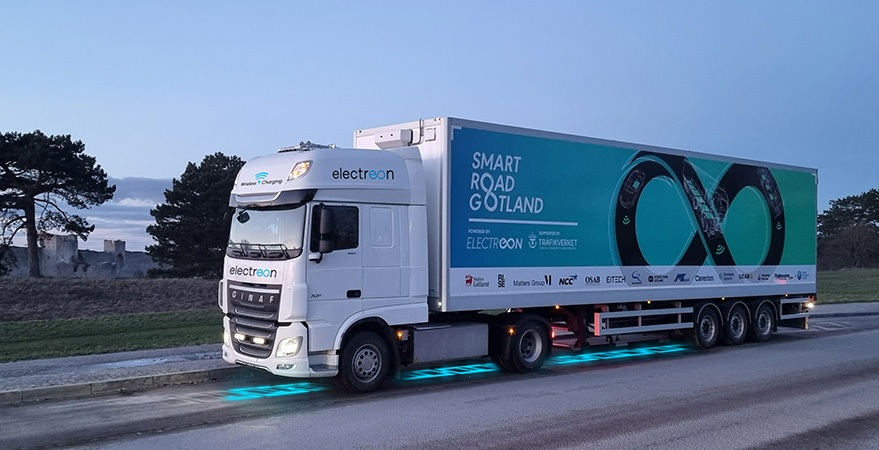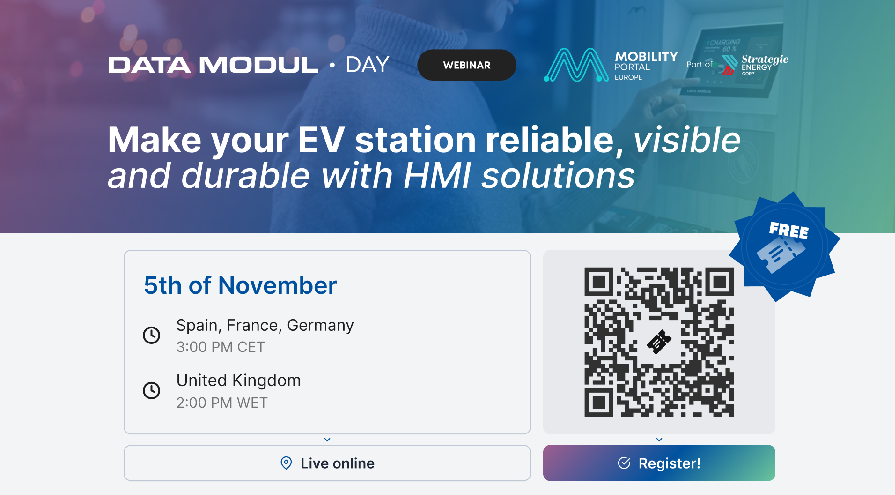The National Fund for Environmental Protection and Water Management (NFOŚiGW) announced the launch of calls for funding to support zero-emission heavy transport in Poland.
The initial programmes will commence on 31 March, with calls focused on the development of charging infrastructure and electrical networks.
Subsequently, a third incentive scheme will be introduced, aimed at facilitating the acquisition or leasing of electric trucks in categories N2 and N3.
The first call for the programme dedicated to the construction and expansion of public charging stations for eTrucks will remain open until 31 August or until the allocated budget is exhausted.
This initiative will have an initial budget of two billion zlotys (approximately 480 million euros).
During the webinar titled “Regulations and Operation of Support Programmes for Heavy Electric Transport,” participants detailed:
“It is estimated that at least 550 charging stations will be constructed or expanded.”
The programme, financed through the Modernisation Fund, will provide grants covering up to 100% of eligible costs for businesses classified as such under the Entrepreneurs Act.
The initiative delineates two strategic areas of action: 80% of the budget will be allocated to infrastructure within the core TEN-T transport network, while the remaining 20% will be directed towards facilities in logistics centres, intermodal terminals, and operational bases.
In both instances, charging stations must be located within three kilometres of designated logistics corridors and be equipped with charging points of at least 350 kilowatts.
A competitive selection process will be implemented, meaning that two distinct categories will be established within the application process.
Applicants may submit multiple applications within a single call, provided the total requested amount does not exceed 40% of the budget allocated for that round.

According to the competition rules, 5% of the projects with the lowest positive scores will undergo additional review before funds are disbursed.
A key requirement is that the “refueling” point must be exclusively dedicated to heavy-duty vehicles and must be physically adapted to accommodate trucks, ensuring it is not accessible to private passenger cars.
Simultaneously, from 31 March until 31 December 2025, applications will be accepted for the programme supporting the expansion of the electrical network.
A minimum total connected power of 3,600 kilowatts is established for installations in the core TEN-T network, 1,500 kilowatts in its extended network, and 350 kilowatts for logistics centres, operational bases, and intermodal terminals.
Additionally, all funded infrastructure must be located within a single land parcel, with the applicant holding the legal right to use the site.
It is estimated that this programme will facilitate the construction or modernisation of at least 50 power supply points and the creation of a 100 MW connection capacity.
Eligibility extends to all distribution system operators as defined under the Energy Law, with grants covering up to 100% of eligible costs, similar to the previous programme.
Regarding the financing of E-Trucks
From the second quarter of 2025, a new funding stream will be introduced to support the acquisition or leasing of electric vehicles in categories N2 and N3, with a target of at least 3,800 new units.
“The scheme aims not only to electrify transport but also to improve air quality and enhance the competitiveness of Poland‘s logistics sector,” stakeholders emphasise.
The programme’s design follows a comprehensive approach, integrating three key development areas: charging infrastructure, the electrical grid, and fleet renewal.
This framework will remain active until 30 June 2029 for fund allocation, while contracts may be signed until 31 December 2028.
The level of support will depend on the size of the applicant company: up to 60% for small enterprises, 40% for medium-sized firms, and 30% for large corporations.
For leasing arrangements, the subsidy will not exceed the amount of the initial payment.
The maximum funding amounts will be 400,000 zlotys per N2 vehicle and 750,000 zlotys per N3 unit.
Only brand-new, factory-produced vehicles, with no prior registration and a maximum mileage of 6,000 km, will be eligible.
During the informational webinar, experts clarified: “The comparison with a reference conventional vehicle will be a key factor in determining the level of support granted.”
The maximum contribution per company will be 50% of the total budget allocated to the call.
As in other cases, funding will be available for both direct purchases and leasing arrangements.
Regarding the application process, the managing operator for this funding stream has yet to be determined, along with the final application platform.
Preliminary indications suggest the structure could resemble the “My Electric” programme, previously managed by BOŚ Bank.
This grant scheme represents a strategic response to European emission reduction regulations.
EU targets stipulate that by 2040, new trucks must reduce CO₂ emissions by 90% compared to 2019 levels, effectively leading to the phase-out of diesel units from the market.
“One in five trucks operating in Europe is registered in Poland,” webinar participants highlighted, underscoring the urgency of structural transformation.
It is important to note that project selection will be competitive.
70% of the evaluation score will be based on the efficiency of fund utilisation, measured in kilowatts per zloty invested.
Thus, while applicants may request full reimbursement, “projects demonstrating greater cost-effectiveness will have a higher chance of success.”
The significant interest in the programme prompted webinar participants—NFOŚIGW, the Polish New Mobility Association (PSNM), F5A, and KPMG—to organise additional information sessions.
“We plan to hold new webinars, likely on 3 April or in the following weeks, to continue explaining the requirements,” they announced.
How does Poland’s programme differ from EU initiatives?
Przemysław Szywacz, a partner at KPMG and an automotive sector financing specialist, noted that the European Commission offers a similar programme, the “Connecting Europe Facility.”

However, he pointed out that this initiative has a total budget of approximately one billion euros for the entire European Union.
By contrast, the Polish programme has a budget of two billion zlotys, equivalent to roughly 500 million euros.
“This makes national funding opportunities more accessible compared to competing for an EU-wide call,” he observed.
Furthermore, he highlighted that the territorial scope and financing percentage make the Polish programme a more attractive tool.
“At the EU level, grants are typically provided as fixed amounts per charging point or as a percentage, but only when stations of at least 1 MW capacity are installed,” he explained.
He further clarified: “In contrast, the Polish scheme allows for up to 100% coverage of eligible costs and offers a broader range of eligible locations.”
Regarding supplier selection, beneficiaries will have the freedom to choose the manufacturer or installer of the charging station, provided they meet the programme’s technical requirements.
This point was confirmed by the technical team of the National Fund during the Q&A session.
As for fund disbursement, no definitive timeframe has been established.
“We are working to process applications as swiftly as possible, but it is important to note that we will be managing two calls in parallel,” experts acknowledged.
In this manner, support for heavy transport complements the financial mechanisms previously offered by the Fund.
“In total, over 12 billion zlotys will be allocated to the development of electromobility in Poland, with half specifically focused on zero-emission heavy transport,” they concluded.
READ MORE
-
Possible bankruptcy? JLR cyberattack halts production and threatens UK EV sector
The cyber incident forced JLR to halt production for almost two months, a decision that resulted in costs of £1.9 billion. However, experts warn that the reported losses “may represent only a fraction of the total damage.”
-
France installs world’s first motorway capable of recharging EVs while they drive
The pilot project, called Charge as you drive, covers 1.5 kilometres of the motorway. Beneath the asphalt are coils that transmit energy to vehicles fitted with a special device to receive it.
-
Data Modul Day: “Make your EV station reliable, visible, and durable with HMI solutions”
On 5 November, Data Modul will host a web seminar on HMI solutions for EV charging stations — a must-attend event for manufacturers seeking to innovate and optimise their products.











